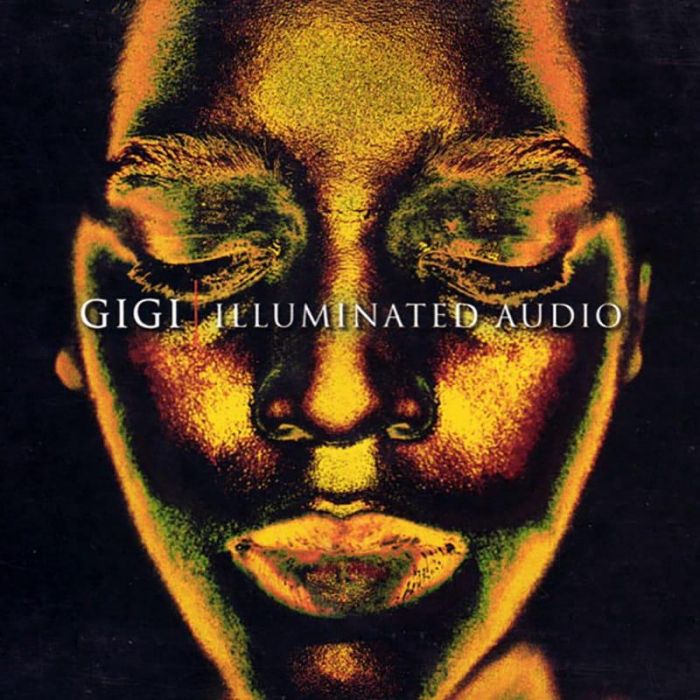Illuminated Audio by Gigi (Review)

At its worst, “world music” often feels designed to appeal to people whose idea of “exotic” is burning the occasional incense stick, purchasing a piece of native-crafted furniture from the local imported goods store, and going out for Thai once in awhile. It’s often cliched to the point of self-parody, offering an introduction to the music of other cultures that’s so banal and watered down it’s hard to take seriously. However, at its best, “world music” can offer a truly otherworldly experience, adding much-needed flavor and spice to listening diets that can be rather dull and placid.
Illuminated Audio falls somewhere between those two poles. At worst, it becomes repetitive and treacly, mired down by its rhythms and “exotic” atmospheres. But there are also many moments when the album reveals unexpected pleasures, otherworldly passages, and plenty of exotic textures and fragrances.
After releasing her self-titled debut in 2001, Gigi and producer Bill Laswell (yes, that Bill Laswell) went back into the studio to rework the entire album. But somewhere in the midst of this process, this album ceased being a Gigi album and became a Bill Laswell release. I doubt this was the intent, since Laswell and Gigi worked closely together. However, it’s obvious that Laswell’s production skills are the dominant element at work here.
Since we are talking about Laswell here, the disc does have a very lush, ambient sound throughout, with subtle undercurrents of dub and trance worked in throughout. Swirling bits of guitar, piano, and saxophone weave their way throughout the complex layers of percussion, exuding a very organic feel. Sprinkled throughout are ghostly fragments of Gigi’s acclaimed vocals, which gently and wordlessly caress the listener’s ears. Altogether, it can make for a refreshing sound, akin to diving into a verdant jungle pool or feeling a tropical rainstorm wash over your body.
“Abay” begins on a somewhat alien, foreboding note with windswept synths, sparse rumblings, and skeletal windchimes (think Robert Rich’s Propagation). But that only serves as a prelude to the song’s real beginnings. A growing lattice of organs, shimmering guitars, and crystalline brass slowly begins to take shape, blessed by the wordless vocals of Gigi. Layers of percussion slowly shuffle in, assembling and arranging themselves before entering in. The song takes its time getting everything in place, and even when Laswell’s dubby bassline grooves in at the 5-minute mark, the song still continues to feel like it’s developing. As rhythmic as the song might be, it has a very wide open, expansive feel to it.
However, there are moments when this approach backfires and the album seems to be rehashing previous sounds or simply going nowhere. The exotic rhythms wile and dance away amidst atmospheres that sound like the ones used two songs earlier. While this does lend the album consistency, it can also become dreadfully monotonous at times. And some songs just seem to dwell in one place, swirling for all their worth. They sound pretty enough while doing so, but that beauty just sits there doing nothing. Thankfully, when the album does seem to be spiraling in on itself, Laswell is often able to guide things back onto the right path.
“Mengedegna” refuses to remain static, as Laswell constantly introduces diverse elements. One second, a ghostly Parisian accordion wafts its way over the speakers. The next, it might be replaced by echoing piano notes, the strains of a saxophone, or arid guitar textures. On “Kahn,” his undulating bass weaves its way like a snake through a dense undergrowth of ethnic percussion and disembodied vocals, leaving a trail so hypnotic it’s impossible not to follow.
“Nafeken” might be one of the album’s least involving tracks, but “Abet Wubet” slowly pulls the listener past it as Gigi’s vocals lead to another dense jungle of percussion and Laswell’s basslines. Finally, fans of Dead Can Dance’s more ethnic-oriented works (e.g., Spiritchaser) might find something worth savoring in “Gud Fella,” with its solemn ambience and the angelic vocals (wordless as always) that close out the song.
Sometimes, when I listen to Illuminated Audio, all I hear are the album’s slower, less interesting moments. I hear the watery ambience or the complex rhythms that often seem to be pop up over and over between tracks. But more often than not, I find it an entrancing listen. The slower moments certainly do detract from the overall enjoyment, and can make listening to the album in one sitting a chore at times. Still, its finest moments are very fine indeed, offering seductive, enticing glimpses into another world of sound.